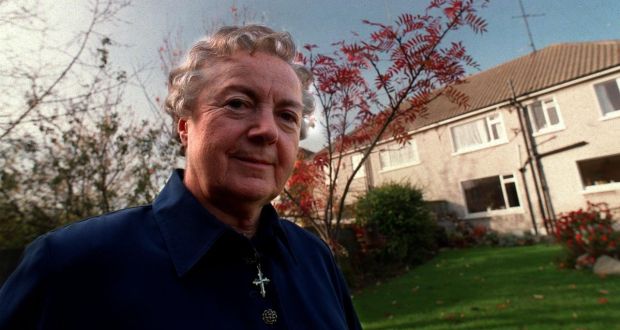One of the most mendacious aspects of the Dying with Dignity bill, it seems to me, is calling it ‘dying with dignity’. It is an assisted suicide measure, and if truth meant anything in the public realm, that is what it should be called.
‘Dying with dignity’ is a propaganda phrase which deliberately implies that only those who are given assisted suicide die with dignity. It’s a little like the phrase used when a family pet is given a lethal injection: doggie is ‘put to sleep’. It’s a harmless euphemism for a pet dog, but in the case of ‘dying with dignity’ for human persons, it is false and misleading. It implies that a natural death won’t be a ‘death with dignity’. Which isn’t true.
Comforts
I sat at my husband’s side while he died with dignity. His life ebbed away gradually: he was surrounded by family, friends and the comforts that the dying deserve. It was a gentle, peaceful passing, as nature took its course, with grace and dignity.
Sometimes death’s approach is frightening: but thankfully, we have medication that can ease its passage. When my sister’s life was moving towards its end, it was evident that she needed more medication. This was in a New York hospice. I requested more morphine, and was told it would be given – but I’d have to sign a form waiving any legal claims to over-use of drugs. Bureaucracy, prompted by lawyers, had hindered the comfort of a medication.
Death takes many forms, and the words of the New Testament remain so relevant”
When the dosage was corrected, her passage was eased, and supported, incidentally, by a ‘doula’, who acts like a midwife, comforting the dying person.
For those who uphold assisted suicide, a dignified death may be delivered through a lethal injection. That is their point of view. But the error is in claiming that only an assisted suicide is ‘dying with dignity’.
Death takes many forms, and the words of the New Testament remain so relevant: we know not the day nor the hour. However much we plan, death may still surprise us, like a thief in the night.
Assisted suicide may be well-intentioned, but the ideology springs from the modern obsession with ‘control’ and ‘autonomy’. As though we can ‘control’ all elements of nature. Nature, too, soon swoops on us and teaches us differently.
Margaret MacCurtain: a lady who was an example of true patriotism
The late Margaret MacCurtain [pictured], also known as Sr Benvenuta OP often attended our veteran feminists’ annual lunch over recent years. At one such event, it was decided on an informal vote that Margaret, as a scholar and a nun, had probably lived as fulfilled a life as any woman known. Who else did we know who had studied in Salamanca and Louvain in the 1950s?
She always seemed a genuinely serene person and she was comfortable in any company. If she had controversial views, for a Catholic nun – she supported the introduction of civil divorce, for example – they were usually voiced in such a non-confrontational way that mitigated an adversarial argument.
Margaret, who has died aged 91, was a fine scholar – with special knowledge of Irish diplomacy in 17th-Century Spain and Portugal, and the role of Irish women in Medieval Ireland. She was also extremely generous with her time and wisdom – she kindly read a historical text I had written and made helpful suggestions about it. Many academics wouldn’t go to such trouble for a non-student, but Margaret did.
Conservatism
Yes, she challenged aspects of religious conservatism: this may have been rooted in an early disagreement with Archbishop McQuaid when she was teaching at UCD. He asked to see her notes on the Reformation, with a view to registering his approval or disapproval. With the support of her prioress, she politely refused, explaining that the Dominican order was answerable to Rome, not to the Diocese of Dublin!
I once heard her speak inspiringly about her parents’ attitudes in the early years of the Free State, during the 1920s. “There was a feeling that people should do their best for the country, to contribute to the building up of the new state, rather than just think about themselves,” she said. What a tribute to her parents Seán and Ann McKenna, and an example of true patriotism.
Ar dhéis Dé go raibh a hanam.


 Mary Kenny
Mary Kenny Margaret MacCurtain
Margaret MacCurtain 